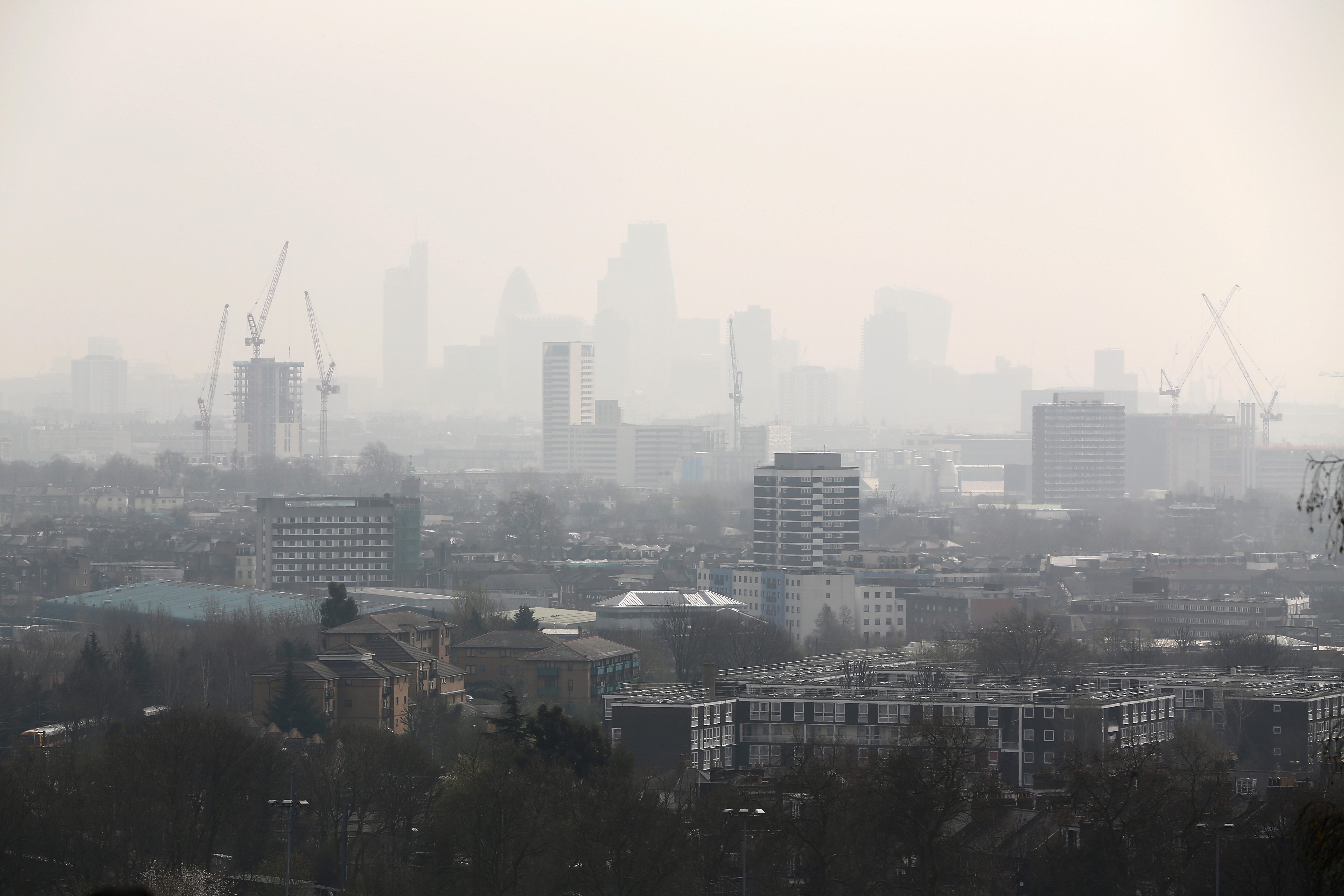Toxic air ‘will shorten children's lives by 20 months’
Study finds that air pollution contributes to nearly one in every 10 deaths

A free daily email with the biggest news stories of the day – and the best features from TheWeek.com
You are now subscribed
Your newsletter sign-up was successful
The life expectancy of children born today will be cut by 20 months on average by breathing the toxic air that is widespread across the globe, according to a major study.
The State of Global Air 2019 report found that the greatest toll will be in south Asia, where children can expect to have their lives cut short by 30 months.
Researchers found that air pollution contributed to nearly one in every 10 deaths in 2017, making it a bigger killer than malaria and road accidents and on par with smoking.
The Week
Escape your echo chamber. Get the facts behind the news, plus analysis from multiple perspectives.

Sign up for The Week's Free Newsletters
From our morning news briefing to a weekly Good News Newsletter, get the best of The Week delivered directly to your inbox.
From our morning news briefing to a weekly Good News Newsletter, get the best of The Week delivered directly to your inbox.
Older adults are also at risk across the globe. Nearly 90% of deaths attributable to air pollution were among the over-50s. The researchers said that ageing populations in many parts of the world are likely to increase the death toll for years to come.
“That the life of children is being shortened so much came as really quite a shock,” said Robert O’Keefe, of the Health Effects Institute, which produced the report.
He conceded that there is no single act that leaders can take to reverse the trend, saying: “There is no magic bullet but governments should be taking action.”
However, he pointed to China’s levels of air pollution, which have gone against the trend of the developing world by starting to fall in recent years.
A free daily email with the biggest news stories of the day – and the best features from TheWeek.com
The authorities in China have set air quality targets and introduced measures to reduce the reliance on coal and make industry cleaner. They have also restricted the number of vehicles in some cities and poured funds into clean energy.
“They have kept on pursuing this, they have dispatched government officials to these places to enforce, and air pollution has begun to turn a corner in China,” he said.
He estimates that air pollution now accounts for 41% of global deaths from chronic obstructive pulmonary disease, 20% from type 2 diabetes, 19% from lung cancer, 16% from ischaemic heart disease, and 11% of deaths from stroke.
The study has been hailed as the most systematic annual study of the health effects of global air pollution.
-
 The ‘ravenous’ demand for Cornish minerals
The ‘ravenous’ demand for Cornish mineralsUnder the Radar Growing need for critical minerals to power tech has intensified ‘appetite’ for lithium, which could be a ‘huge boon’ for local economy
-
 Why are election experts taking Trump’s midterm threats seriously?
Why are election experts taking Trump’s midterm threats seriously?IN THE SPOTLIGHT As the president muses about polling place deployments and a centralized electoral system aimed at one-party control, lawmakers are taking this administration at its word
-
 ‘Restaurateurs have become millionaires’
‘Restaurateurs have become millionaires’Instant Opinion Opinion, comment and editorials of the day
-
 Epstein files topple law CEO, roil UK government
Epstein files topple law CEO, roil UK governmentSpeed Read Peter Mandelson, Britain’s former ambassador to the US, is caught up in the scandal
-
 Iran and US prepare to meet after skirmishes
Iran and US prepare to meet after skirmishesSpeed Read The incident comes amid heightened tensions in the Middle East
-
 Israel retrieves final hostage’s body from Gaza
Israel retrieves final hostage’s body from GazaSpeed Read The 24-year-old police officer was killed during the initial Hamas attack
-
 China’s Xi targets top general in growing purge
China’s Xi targets top general in growing purgeSpeed Read Zhang Youxia is being investigated over ‘grave violations’ of the law
-
 Panama and Canada are negotiating over a crucial copper mine
Panama and Canada are negotiating over a crucial copper mineIn the Spotlight Panama is set to make a final decision on the mine this summer
-
 Why Greenland’s natural resources are nearly impossible to mine
Why Greenland’s natural resources are nearly impossible to mineThe Explainer The country’s natural landscape makes the task extremely difficult
-
 Iran cuts internet as protests escalate
Iran cuts internet as protests escalateSpeed Reada Government buildings across the country have been set on fire
-
 US nabs ‘shadow’ tanker claimed by Russia
US nabs ‘shadow’ tanker claimed by RussiaSpeed Read The ship was one of two vessels seized by the US military